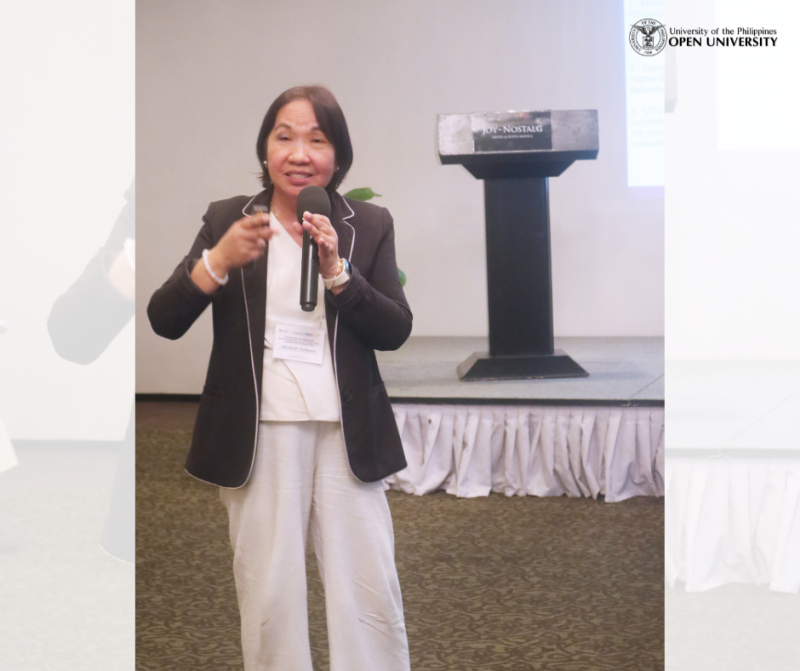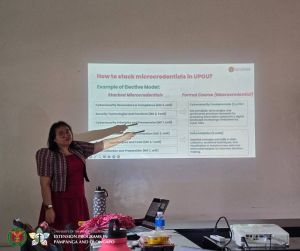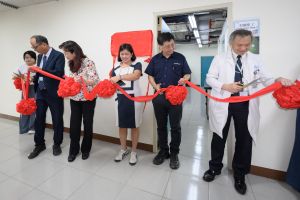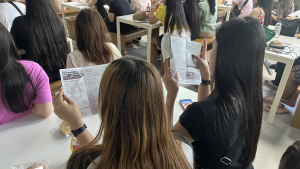Dr. Melinda dela Peña Bandalaria, Professor at UPOU’s Faculty of Information and Communication Studies, served as one of the speakers at the Roundtable Discussion (RTD) on Microcredentials in Southeast Asia: Lessons for the Philippines, organized by the Southeast Asian Center for Graduate Studies and Research in Agriculture (SEARCA) on 30 October 2025. The event was held at the Ortigas Center, Pasig City, and was also streamed online.
In her presentation, “UPOU’s Microcredentialing Program: Reframing and Elevating Lifelong Learning Engagements,” Dr. Bandalaria outlined the key features and models of microcredential development at UPOU, along with the quality assurance indicators that ensure their relevance and rigor.
Aside from providing a historical overview of UPOU’s early attempts at microcourses, she highlighted the university’s recently offered microcredentials in nursing education and social work and development, as well as upcoming programs in web development, regional integration, local governance, resilience, climate and disaster preparedness, and patient-centered care.

Dr. Melinda Bandalaria discusses UPOU’s Microcredentialing Program at the Roundtable Discussion on Microcredentials in Southeast Asia. (Credit: SEARCA)
Dr. Bandalaria emphasized that microcredentials align closely with UPOU’s mandate to provide lifelong learning opportunities. With their ability to be stacked toward larger credentials, microcredentials create pathways bridging non-formal and formal education. They also respond to the evolving demands of the workforce by supporting upskilling and reskilling.
Moreover, she noted that microcredentials can be designed to equip learners to address societal challenges, including disaster resilience and the Sustainable Development Goals (SDGs). As such, they play a vital role in realizing the vision of UPOU as a Transformative University of the Future.
Dr. Bandalaria, former Chancellor and current member of the UPOU Microcredentials Committee, represented the University at the panel “Philippine Perspectives and Emerging Directions on Micro-Credentials.” She was joined by representatives from other academic institutions, including University of the Philippines Los Baños (UPLB), Mapúa University, and Batangas State University.
The government sector was represented by the Commission on Higher Education (CHED), Department of Education (DepEd), Professional Regulation Commission (PRC), and Technical Education and Skills Development Authority (TESDA). The discussion focused on the evolving role of microcredentials in higher education, lifelong learning, and workforce development in the Philippines.
The other panel, “Regional Perspectives on Micro-Credentials,” included invited speakers and experts from the Malaysian Qualifications Agency (MQA) and Wawasan Open University in Malaysia, Thailand Professional Qualification Institute, and the SEAMEO Regional Language Centres in Singapore and Indonesia.
Written by Primo G. Garcia | Photo Courtesy of SEARCA











